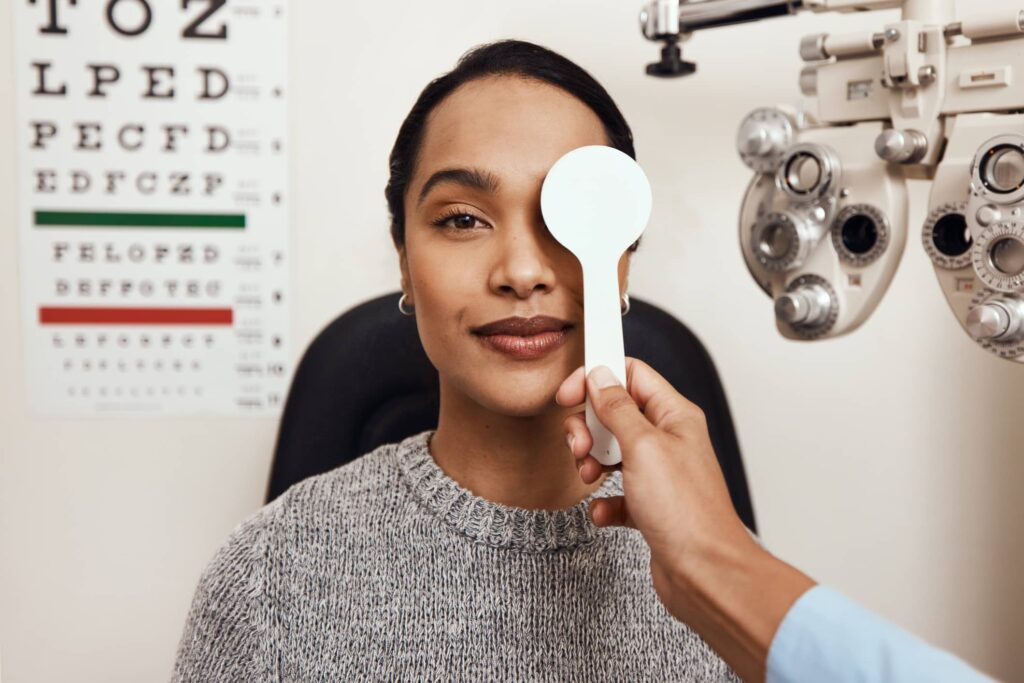All Categories
Featured
Low vision is a condition that substantially affects everyday tasks like reading, driving, or identifying faces, despite rehabilitative lenses. For people encountering such challenges, reduced vision rehabilitation offers a pathway to reclaim independence and enhance lifestyle. Let's dive right into the readily available alternatives for reduced vision recovery and just how they help people navigate the globe a lot more with confidence.
Recognizing Low Vision Rehabilitation
Reduced vision recovery is a specialized service created to optimize the functional capabilities of people with long-term vision disability. This multidisciplinary approach involves evaluations, training, and tools tailored per person's unique demands. The objective is to empower people by boosting their staying vision and teaching methods to adjust to their setting.
Key Options in Reduced Vision Rehabilitation
Comprehensive Eye Assessments
A low vision professional carries out comprehensive analyses to understand the level of vision loss and determine suitable interventions. These evaluations concentrate on identifying the individual's visual skill, field of vision, and light sensitivity.
Assistive Instruments and Innovation
A wide range of innovations and devices are readily available to aid individuals with reduced vision:
Magnifiers: Handheld, stand-mounted, or digital magnifiers aid enlarge text or images.
Telescopic Lenses: Useful for distance viewing, such as enjoying television or reading road signs.
Screen Readers: Software that reviews out loud the message on a display, assisting those that have problem with analysis.
CCTV Solutions: Closed-circuit tvs amplify published material or things for much easier watching.
![]()
Smart Device Apps: Apps like Be My Eyes or Seeing AI supply real-time aid and descriptions of surroundings.
Training Programs
Vision rehabilitation consists of training to enhance making use of remaining vision and adjust to new devices:
Alignment and Flexibility Training: Helps individuals browse unknown spaces and use walking canes or guide pet dogs successfully.
Daily Living Abilities: Teaches methods for food preparation, grooming, and various other daily jobs with limited vision.
Visual Abilities Educating: Entails exercises to enhance peripheral vision or enhance emphasis.
Environmental Modifications
Adjusting the home or office can substantially boost self-reliance:
Mounting brighter illumination and contrasting shades.
Including responsive pens to appliances.
Organizing furnishings to develop clear paths and reduce challenges.
Counseling and Psychological Assistance
Vision loss can be mentally challenging. Support teams and therapy solutions aid people handle the emotional influence and build durability.
Who Provides Reduced Vision Rehab?
Reduced vision recovery solutions are provided by:
Low Vision Specialists: Optometrists or eye doctors with extra training.
Work Therapists: Professionals who concentrate on boosting day-to-day functioning.
Recovery Therapist: Specialists who assist with emotional and psychological assistance.
![]()
Conclusion
Low vision recovery is a lifeline for those living with considerable vision loss. With the right devices, training, and assistance, people can lead satisfying and independent lives. Whether it's through progressed modern technologies, customized training programs, or emotional assistance, the alternatives available today make certain that no person needs to deal with low vision alone. If you or a liked one is experiencing vision obstacles, think about connecting to a reduced vision specialist to discover these transformative rehab solutions.
Recognizing Low Vision Rehabilitation
Reduced vision recovery is a specialized service created to optimize the functional capabilities of people with long-term vision disability. This multidisciplinary approach involves evaluations, training, and tools tailored per person's unique demands. The objective is to empower people by boosting their staying vision and teaching methods to adjust to their setting.
Key Options in Reduced Vision Rehabilitation
Comprehensive Eye Assessments
A low vision professional carries out comprehensive analyses to understand the level of vision loss and determine suitable interventions. These evaluations concentrate on identifying the individual's visual skill, field of vision, and light sensitivity.
Assistive Instruments and Innovation
A wide range of innovations and devices are readily available to aid individuals with reduced vision:
Magnifiers: Handheld, stand-mounted, or digital magnifiers aid enlarge text or images.
Telescopic Lenses: Useful for distance viewing, such as enjoying television or reading road signs.
Screen Readers: Software that reviews out loud the message on a display, assisting those that have problem with analysis.
CCTV Solutions: Closed-circuit tvs amplify published material or things for much easier watching.

Smart Device Apps: Apps like Be My Eyes or Seeing AI supply real-time aid and descriptions of surroundings.
Training Programs
Vision rehabilitation consists of training to enhance making use of remaining vision and adjust to new devices:
Alignment and Flexibility Training: Helps individuals browse unknown spaces and use walking canes or guide pet dogs successfully.
Daily Living Abilities: Teaches methods for food preparation, grooming, and various other daily jobs with limited vision.
Visual Abilities Educating: Entails exercises to enhance peripheral vision or enhance emphasis.
Environmental Modifications
Adjusting the home or office can substantially boost self-reliance:
Mounting brighter illumination and contrasting shades.
Including responsive pens to appliances.
Organizing furnishings to develop clear paths and reduce challenges.
Counseling and Psychological Assistance
Vision loss can be mentally challenging. Support teams and therapy solutions aid people handle the emotional influence and build durability.
Who Provides Reduced Vision Rehab?
Reduced vision recovery solutions are provided by:
Low Vision Specialists: Optometrists or eye doctors with extra training.
Work Therapists: Professionals who concentrate on boosting day-to-day functioning.
Recovery Therapist: Specialists who assist with emotional and psychological assistance.

Conclusion
Low vision recovery is a lifeline for those living with considerable vision loss. With the right devices, training, and assistance, people can lead satisfying and independent lives. Whether it's through progressed modern technologies, customized training programs, or emotional assistance, the alternatives available today make certain that no person needs to deal with low vision alone. If you or a liked one is experiencing vision obstacles, think about connecting to a reduced vision specialist to discover these transformative rehab solutions.
Latest Posts
Exactly How to Repair a Leaning or Damaged Fencing Article
Published Jan 23, 25
0 min read
Vibrant Eating and Sports Ambience
Published Jan 23, 25
1 min read
Expert Vinyl Fence Installation - Idaho’s Leading Fence Experts.
Published Jan 22, 25
1 min read